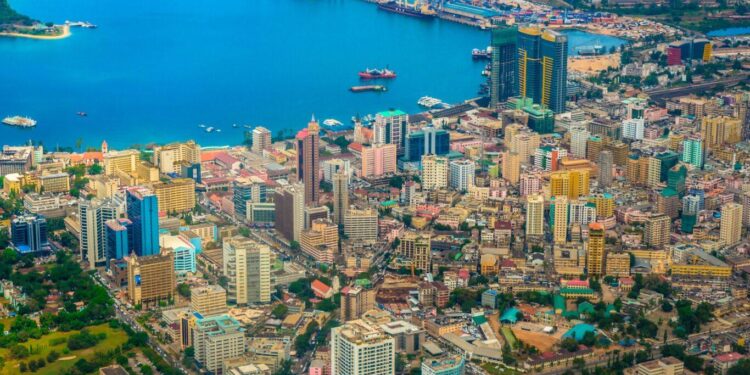Introduction
Dar es Salaam, Tanzania’s bustling economic hub, is witnessing a paradoxical scenario in its real estate sector-marked by unprecedented growth yet hindered by significant challenges. As demand for residential and commercial properties surges in this vibrant city, driven by urbanization and an influx of investment, stakeholders are highlighting a series of hurdles that threaten to destabilize this burgeoning market. From regulatory bottlenecks and infrastructure deficits to soaring construction costs, the obstacles facing real estate developers and investors are proving formidable. In this article, we explore the dynamics of Dar es Salaam’s real estate landscape, examining the driving forces behind its expansion and the critical barriers that could shape its future trajectory.
Dar es Salaam’s Real Estate Surge Confronts Infrastructural Challenges
As Dar es Salaam experiences a remarkable rise in its real estate sector, bolstered by increasing foreign investment and a growing population, the city faces serious infrastructural hurdles that could impede its continued growth. The rapid construction of commercial and residential properties is not matched by improvements in essential services and infrastructure. Issues such as traffic congestion, inadequate public transport, and inconsistent waste management services have become prevalent, raising concerns among developers and residents alike.
Stakeholders are calling for a coordinated approach to infrastructure development that can keep pace with the booming property market. The government and private sector must collaborate to address these challenges and ensure sustainable urban development. Key focal points for improvement include:
- Public Transport Expansion: Developing a reliable public transport system to ease traffic flow.
- Road Network Upgrades: Expanding and enhancing existing road networks to accommodate increased vehicular traffic.
- Utilities Infrastructure: Ensuring consistent water supply and electricity services to support new developments.
- Waste Management Solutions: Implementing efficient waste disposal systems to maintain environmental hygiene.
| Infrastructure Needs | Impact on Real Estate |
|---|---|
| Upgraded Transport Systems | Improves accessibility and boosts property values. |
| Robust Utilities Framework | Attracts more investors, ensuring consistent occupancy. |
| Effective Waste Management | Enhances living conditions, increasing appeal for buyers/renters. |
Understanding the Impact of Regulatory Frameworks on Property Development
The real estate sector in Dar es Salaam is experiencing significant growth, yet it faces various challenges stemming from the regulatory frameworks governing property development. These frameworks are crucial in ensuring that development aligns with urban planning, environmental sustainability, and community needs. However, the complexity and sometimes inconsistency of these regulations can create hurdles for developers. Many stakeholders report facing delays in obtaining necessary permits, leading to increased project costs and uncertainty in investment. The need for clearer guidelines is evident, as developers must navigate a labyrinth of regulations that can impede progress and affect overall market confidence.
To illustrate the current landscape, it is important to recognize key aspects of regulatory impact:
- Permit Acquisition Delays: Lengthy processes discourage potential investors and developers.
- Compliance Costs: Adhering to varying regulations increases financial burdens.
- Infrastructure Constraints: Regulatory approvals often do not align with infrastructure development timelines.
- Market Volatility: Uncertainty in regulatory changes leads to fluctuating property values.
As the demand for housing and commercial properties continues climbing, striking a balance between development and regulation will be essential. Stakeholders are advocating for reforms that streamline processes while still protecting community interests, enabling Dar es Salaam’s real estate sector to thrive amidst rising demands.
Strategic Recommendations for Sustainable Growth in the Real Estate Market
To navigate the challenges faced by Dar es Salaam’s real estate sector, stakeholders must embrace a multi-faceted approach that prioritizes sustainability and local engagement. Investing in green building technologies can significantly reduce operational costs and appeal to environmentally conscious buyers. Furthermore, fostering public-private partnerships can facilitate infrastructure development, improve urban planning, and enhance service delivery. These collaborations encourage innovation and allow for better resource allocation, thus addressing housing shortages and boosting market confidence.
Additionally, active involvement of the community in decision-making processes can be pivotal. Engaging local residents in urban development initiatives helps ensure that new projects align with the needs and desires of the population. Implementing workshops and forums to gather feedback and ideas can create a more inclusive environment, resulting in developments that are both socially responsible and economically viable. To monitor progress and evaluate the impact of these strategies, establishing a real estate growth index can provide valuable insights into trends and areas needing attention.
| Strategy | Description |
|---|---|
| Green Building Technologies | Investing in sustainable materials and energy-efficient designs. |
| Public-Private Partnerships | Collaborating for better infrastructure and urban services. |
| Community Engagement | Involving residents in planning and feedback processes. |
| Real Estate Growth Index | Tracking market trends to inform strategic decisions. |
The Way Forward
As Dar es Salaam’s real estate sector continues to exhibit signs of growth, the challenges it faces cannot be overlooked. From regulatory hurdles to economic fluctuations, the path forward for developers and investors remains fraught with complexities. As stakeholders in the industry adapt to these realities, the resilience of the market will be tested in the coming months. Will innovative solutions and strategic partnerships emerge to navigate these obstacles, or will they hinder the sector’s potential? The future of Dar es Salaam’s real estate landscape hangs in the balance, prompting an urgent dialogue among policymakers, investors, and the community. As we look ahead, it will be crucial to monitor the developments that will shape this dynamic market and impact the lives of those who call this vibrant city home.














